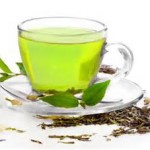Anti-Cancer Supplements (Supplements That Prevent Cancer)
Healthy Diet is the best first-line defence to prevent cancer
Fish Oil
Fish oil contains omega-3 fatty acid, which helps the body absorb nutrients and fend off inflammation. Some studies indicate that omega-3s may prevent cancer and heart disease.Verdict: Inconclusive. Like all supplements, researchers don’t know whether fish oil acts alone or with other food chemicals to provide cancer protection. Most people can tolerate up to 3,000 milligrams per day of fish oil. But higher doses may impair the immune system and increase bleeding and stroke risk. Instead of using fish oil, include oily fish, such as salmon and tuna, in your diet.
Suspect: Flaxseed
Charge: Flaxseed contains lignans, which may be helpful in reducing cancer risk. Lignans are phytoestrogens, plant chemicals that mimic the hormone estrogen. Flaxseed is also rich in omega-3 fatty acid.
Verdict: Laboratory research has shown flaxseed may slow colon, skin, lung and breast cancer growth, but results haven’t been confirmed in humans. Some people take flaxseed oil, but it does not contain lignans and lacks the antioxidant properties of ground flaxseed. Instead of oil, consider sprinkling ground flaxseed, which is high in fiber and omega-3s, over cereal or yogurt. But use caution: Flaxseed may cause stomach upset. Drink fluids to prevent bowel obstruction. Flaxseed may also interact with blood thinners, including pain medications such as aspirin.
Green Tea
Charge: People who drink green tea seem to have a lower cancer risk, particularly for cancers of the bladder, esophagus, ovaries, pancreas and possibly breast. Green tea contains plant chemicals called polyphenols that act as antioxidants and anti-inflammatories.
Verdict: Drinking up to three cups of green tea per day is probably safe for most people and may have anticancer effects.
However, green tea extracts or pills are not recommended. Be aware that green tea contains caffeine, which may interact with medications and keep you awake.
Resveratrol
Charge: Resveratrol is a polyphenol known to act as an antioxidant, an antiinflammatory and a weak plant estrogen.
These properties may help it to prevent cellular damage known to trigger cancer, but its ability to slow the growth of cancer cells has only been shown in early laboratory testing.
Verdict:Resveratrol is found in grape skins, so eat more red and purple grapes. It’s too soon to know how resveratrol works or whether resveratrol supplements are safe, so don’t take resveratrol pills — or uncork the red wine. While it’s true that resveratrol is found in wine, it’s also true that alcohol consumption is associated with increased cancer risk. Resveratrol may have an estrogenic effect, so women with hormone-sensitive conditions, in particular, should avoid resveratrol supplements. 
Suspect: Selenium
Charge: Selenium is a mineral found in poultry, fish, wheat and liver. It was once thought to be potentially beneficial in preventing cancer. However, several studies have shown that it is not only ineffective, but also potentially dangerous.
Verdict: Don’t take it.
Studies have shown it does not prevent skin, lung, prostate, stomach and esophageal cancer. Furthermore, research conflicts as to whether it may increase risk for a type of skin cancer called squamous cell carcinoma. Last year, a trial examining vitamin E and selenium for prostate cancer prevention was halted after researchers noted a small increase in diabetes among men who took selenium.
Suspect: Turmeric
Charge: Turmeric, a curry spice, has anti-inflammatory properties and contains an antioxidant called curcumin. In very early basic laboratory studies, curcumin has been shown to stop the spread of melanoma cells. However, researchers do not know whether curcumin has any anticancer effects in humans.
Verdict: A recent study showed turmeric may interfere with chemotherapy for breast cancer, so avoid turmeric during chemo. Turmeric supplements also may worsen gallbladder problems or slow blood clotting.
Vitamin D
Charge: Vitamin D to reduced cancer risk. Vitamin D helps control cell growth and holds promise for cancer prevention.
Verdict: Research hasn’t determined what dose of Vitamin D is effective — and safe — for cancer prevention.
In the meantime, eat oily fish along with milk and fortified cereals. If you have darker skin or are older than 50, get your vitamin D from limited sun exposure or ask your doctor if you require a supplement. The U.S. Food & Drug Administration recommends 400 IU for those 51 to 70 years old and 600 IU for those 71 and older. Continue to wear sunscreen; even though our bodies manufacture vitamin D as a result of sun exposure, it isn’t worth the skin cancer risk.







Leave a Reply